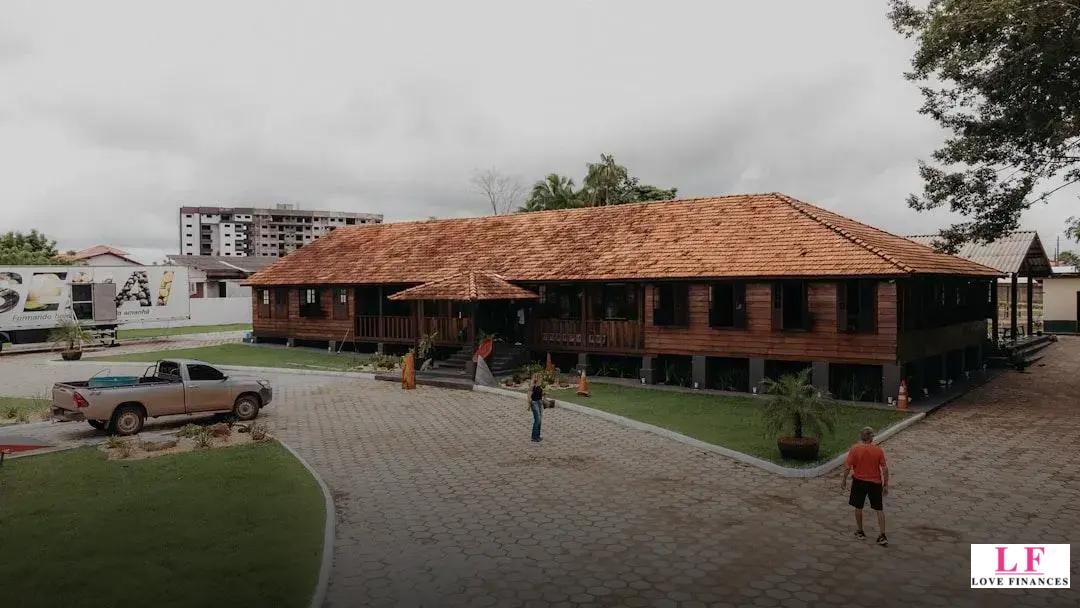As a digital nomad, it’s crucial to have a solid financial plan to ensure stability and growth. In this guide, we’ll explore how to create a financial plan for digital nomads. You’ll learn to set clear financial goals, create a flexible budget, plan for taxes and legalities, invest in insurance and savings, and utilize financial tools and resources. Let’s dive into each step to secure your financial future.
Set Clear Financial Goals
Before you embark on your journey as a digital nomad, it’s crucial to set clear financial goals to ensure your financial stability and growth. Start by identifying what you want to achieve in both the short term and long term. Ask yourself specific questions: Do you want to save for a house, eliminate debt, or build an emergency fund?
Ensure your goals are SMART (Specific, Measurable, Achievable, Relevant, and Time-bound). For instance, setting a goal to save $1,000 a month for emergency savings by the end of the year is much more actionable than a vague intention to ‘save money’.
Break down larger goals into smaller, manageable tasks to maintain motivation and track your progress. Regularly review and adjust your goals as necessary to stay aligned with your financial situation, especially given the unpredictability of income and expenses as a digital nomad.
Setting clear financial goals not only helps you stay focused but also provides a roadmap to achieving the financial freedom needed to sustain your lifestyle. With your objectives clearly defined, you’re in a better position to create a budget, save efficiently, and invest wisely.
Create a Flexible Budget

Create a Flexible Budget
One key to financial success as a digital nomad is establishing a flexible budget that adapts to your ever-changing lifestyle. Unlike traditional budgets, a flexible budget allows you to adjust your expenses based on your current location, income, and lifestyle needs.
Track Your Income and Expenses: Begin by monitoring your monthly income and expenses. Use apps or spreadsheets to keep detailed records. This helps you identify spending patterns and areas where you might reduce expenses.
Set Variable Expense Limits: Different locations bring different costs. Assign maximum spending limits for variable expenses such as accommodation, food, and transportation. Adjust these limits as you move from one place to another.
Emergency Fund: Allocate a portion of your budget for emergencies. This fund is essential for unexpected expenses, such as medical emergencies or sudden travel changes.
Review and Adjust Regularly: Continually review your budget and make necessary adjustments. This flexibility ensures that you remain financially stable regardless of where your travels take you.
Plan for Taxes and Legalities
When you are a digital nomad, managing your finances includes understanding the tax laws and legal requirements of the countries you operate in. Every country has different regulations, and it is essential to be informed to avoid penalties.
Research Tax Obligations
Invest time in researching your tax obligations, both in your home country and the country you are residing in. Some countries have tax treaties to prevent double taxation. Utilize online resources or consult a tax professional to ensure you meet all requirements.
Track Your Expenses
Maintaining a detailed record of your expenses can help when preparing your tax returns. Many digital nomads use apps and software to categorize and track their spending, making it easier to identify deductible expenses.
Understand Visa and Work Permits
Each country has specific visa requirements and conditions for digital nomads. Ensure you have the proper visa and work permits to legally operate within a country. Some countries now offer specific digital nomad visas, providing a more straightforward process for remote work.
Save for Taxes Set aside a portion of your income specifically for tax payments. Open a separate bank account if necessary to avoid spending this money. It’s crucial to be prepared for tax season and any unexpected obligations.
By planning for taxes and legalities, you can avoid complications and focus on growing your financial health as a digital nomad.
Invest in Insurance and Savings

Invest in Insurance and Savings
Insurance and savings are essential components for securing your financial future as a digital nomad. Without a permanent home base, you need to account for health, travel, and property insurance. Consider international health insurance plans that cover you in multiple countries. This ensures you have access to medical care no matter where you are.
Additionally, travel insurance can protect you against unforeseen events like trip cancellations, lost luggage, or emergencies abroad. Make sure to compare policies to find the one that best suits your needs.
Savings are equally crucial. Allocate a portion of your income to an emergency fund. This fund should cover at least 3-6 months of living expenses. Having such a fund can provide peace of mind and financial stability in case of unexpected expenses or job loss.
Think about your long-term goals too. Consider contributing to retirement funds that have tax advantages, such as IRAs or 401(k)s. Even though you’re living a nomadic lifestyle now, planning for the future is vital.
Use Financial Tools and Resources
Leveraging financial tools and resources can significantly aid in managing your finances effectively. Using tools like budgeting apps and financial planning software can help track expenses and incomes. Budgeting apps allow you to categorize your spending and see where your money goes. Additionally, financial planning software can assist in forecasting your future financial status based on your current trends.
It’s also advantageous to utilize resources such as financial blogs and podcasts. These resources can provide valuable tips and up-to-date advice on managing finances as a digital nomad. Online courses and webinars offer deeper insights into financial strategies and planning.
Banking tools like online banking apps and international bank accounts ensure that you have access to your finances from anywhere. Multi-currency accounts can simplify transactions and minimize conversion fees if you work with different currencies.
Lastly, consider using investment platforms to grow your savings. Many platforms offer low-cost investment opportunities that can help build long-term wealth. By taking advantage of these financial tools and resources, you can maintain better control over your finances and ensure that your financial plan is on track.



 Save or pay off debt: find the right path for you <p style='text-transform:none; line-height:20px !important; font-size:16px; font-weight:normal; color:#424242; margin: 0px; margin-top:10px;'>Don't forget: the goal is progress, not perfection, so take it step by step.</p>
Save or pay off debt: find the right path for you <p style='text-transform:none; line-height:20px !important; font-size:16px; font-weight:normal; color:#424242; margin: 0px; margin-top:10px;'>Don't forget: the goal is progress, not perfection, so take it step by step.</p>  What is a credit union? Discover how it can help your finances <p style='text-transform:none; line-height:20px !important; font-size:16px; font-weight:normal; color:#424242; margin: 0px; margin-top:10px;'>Credit unions offer a different way of managing your money compared to traditional banks.</p>
What is a credit union? Discover how it can help your finances <p style='text-transform:none; line-height:20px !important; font-size:16px; font-weight:normal; color:#424242; margin: 0px; margin-top:10px;'>Credit unions offer a different way of managing your money compared to traditional banks.</p>  How to pay off debt in collections without losing your sanity or savings <p style='text-transform:none; line-height:20px !important; font-size:16px; font-weight:normal; color:#424242; margin: 0px; margin-top:10px;'>The sooner you act, the easier it is to avoid lawsuits and further damage to your credit.</p>
How to pay off debt in collections without losing your sanity or savings <p style='text-transform:none; line-height:20px !important; font-size:16px; font-weight:normal; color:#424242; margin: 0px; margin-top:10px;'>The sooner you act, the easier it is to avoid lawsuits and further damage to your credit.</p>